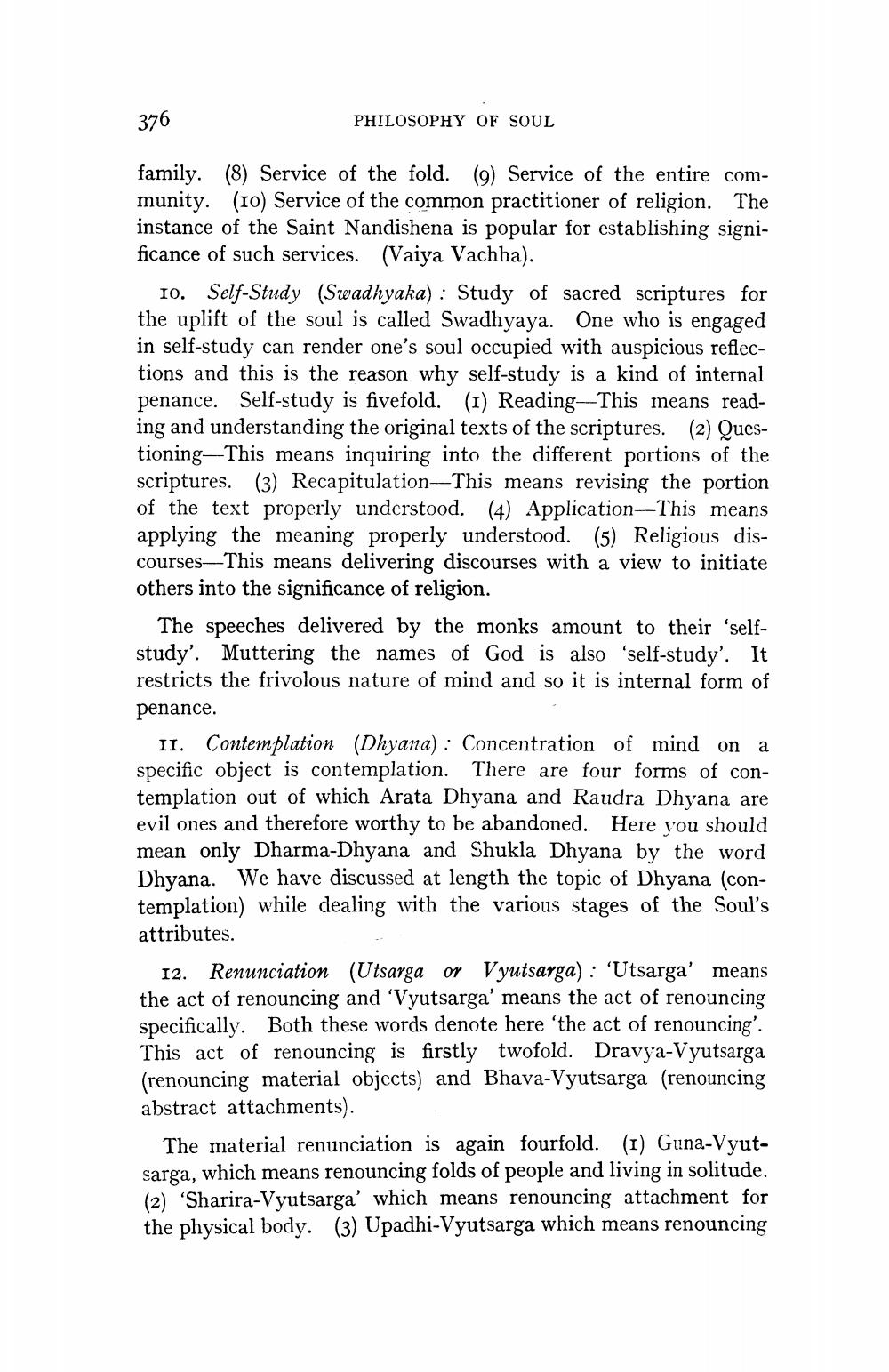________________
376
PHILOSOPHY OF SOUL
family. (8) Service of the fold. (9) Service of the entire community. (10) Service of the common practitioner of religion. The instance of the Saint Nandishena is popular for establishing significance of such services. (Vaiya Vachha).
10. Self-Study (Swadhyaka): Study of sacred scriptures for the uplift of the soul is called Swadhyaya. One who is engaged in self-study can render one's soul occupied with auspicious reflections and this is the reason why self-study is a kind of internal penance. Self-study is fivefold. (1) Reading--This means reading and understanding the original texts of the scriptures. (2) Questioning—This means inquiring into the different portions of the scriptures. (3) Recapitulation-This means revising the portion of the text properly understood. (4) Application--This means applying the meaning properly understood. (5) Religious discourses—This means delivering discourses with a view to initiate others into the significance of religion.
The speeches delivered by the monks amount to their ‘selfstudy'. Muttering the names of God is also 'self-study'. It restricts the frivolous nature of mind and so it is internal form of penance.
II. Contemplation (Dhyana) : Concentration of mind on a specific object is contemplation. There are four forms of contemplation out of which Arata Dhyana and Raudra Dhyana are evil ones and therefore worthy to be abandoned. Here you should mean only Dharma-Dhyana and Shukla Dhyana by the word Dhyana. We have discussed at length the topic of Dhyana (contemplation) while dealing with the various stages of the Soul's attributes.
12. Renunciation (Utsarga or Vyutsarga): 'Utsarga' means the act of renouncing and 'Vyutsarga' means the act of renouncing specifically. Both these words denote here the act of renouncing'. This act of renouncing is firstly twofold. Dravya-Vyutsarga (renouncing material objects) and Bhava-Vyutsarga (renouncing abstract attachments).
The material renunciation is again fourfold. (1) Guna-Vyutsarga, which means renouncing folds of people and living in solitude. (2) 'Sharira-Vyutsarga' which means renouncing attachment for the physical body. (3) Upadhi-Vyutsarga which means renouncing




